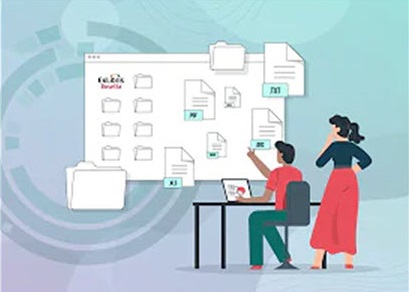Ex Libris, part of Clarivate
35 Articles
From:
To:
Navigating Technology Change: Librarian Leaders Share Their Best Practices
Putting off adoption of new technologies puts libraries at risk of falling behind in serving their users effectively. For libraries tackling new initiatives, the ability to manage change is crucial. We spoke with several library leaders to learn how they reduce organizational stress and navigate change at both the organizational and individual levels.
Resource Sharing Leaders on Creating a Borderless Community
Resource sharing between libraries is nothing new, of course — but what is new is the ease with which potential resource-sharing partners can find each other. We spoke with three librarians who play leading roles in the Rapido/RapidILL resource-sharing community.
A Data-Driven Approach to Optimizing the Academic Library Experience
Understanding how students use and reuse library resources and services is critical for academic libraries. Students make up the bulk of library end-users; they determine whether and how collections are used, how library spaces are used and whether services provide value.
University of Tennessee, Knoxville Delivering on the Expectations of Digital-Native Users
Digital-native users want library resources in digital form. Vendors who furnish those resources are expecting the library to share content responsibly. Using a digital delivery platform, University of Tennessee Libraries are making both groups happy—and enjoying streamlined workflows as a bonus.
Improving Library Performance and Student Outcomes: A Conversation with Jessie Ransom
I'm sure every library has encountered this situation: a student comes in and says, “do you have this book? I need it for this course,” and that's the first time that the library ever hears about this resource being mandatory reading for a course.
How Academic Library Software Can Create a Bold Future
In close collaboration with its customers and the broader community, Ex Libris develops solutions that increase library productivity, maximize the impact of research activities, enhance teaching and learning, and drive student mobile engagement.
University of Liège Deploys Library Mobile App
Patrons have begun to expect 24/7 library services. With Ex Libris Library Mobile, the University of Liège is empowering patrons to access digital services and resources at any time and on any device.
LIUC University, Italy Implements Ex Libris Esploro
With two different, disconnected systems tracking different aspects of the university’s research activities, the staff of the Mario Rostoni Library at LIUC saw an opportunity with Ex Libris Esploro to streamline workflows to comply with Italian laws, and to provide a better service to the university’s community of researchers.
Celebrating World Digital Preservation Day
November 3, 2022, is World Digital Preservation Day - an opportunity to raise awareness to the important cause of digital preservation and to thank all digital preservation experts, advocates, implementers and leaders around the world for their efforts in preserving our cultural heritage.
ALREADY A SUBSCRIBER? LOG IN
We are currently offering this content for free. Sign up now to activate your personal profile, where you can save articles for future viewing










